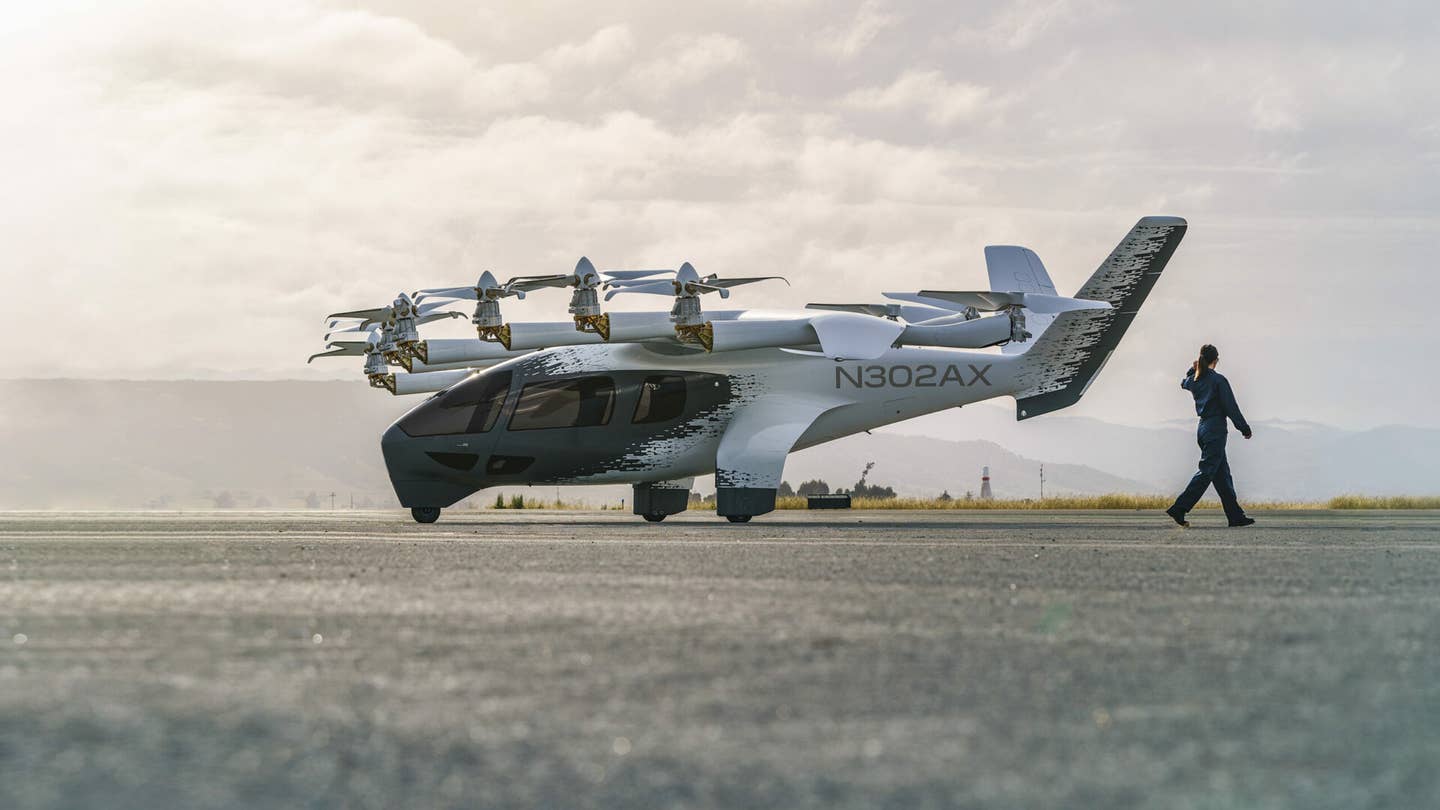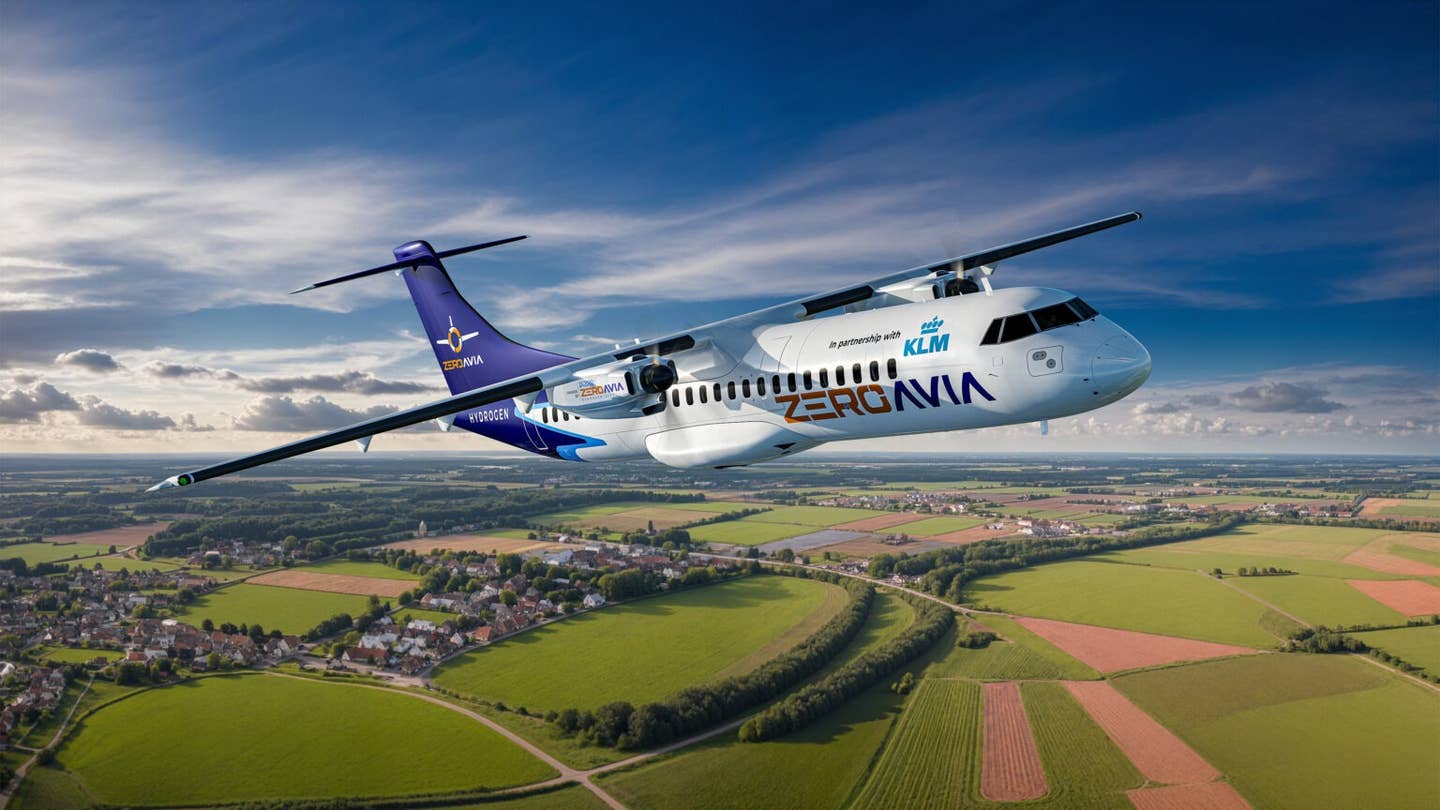Archer Aviation Earns Fresh Funding from Bitter Rival Turned Ally
Archer finally got a monkey off its back, settling its litigation with Wisk Aero and turning its former foe into a key collaborator.

Archer also received FAA approval to begin test flights for its Midnight eVTOL. [Courtesy: Archer Aviation]
Two electric vertical takeoff and landing (eVTOL) manufacturers that have been at each other’s throats for years have decided to make nice.
Archer Aviation and rival Wisk Aero, the eVTOL subsidiary of aviation giant Boeing, jointly announced an agreement to settle a bitter, yearslong trade secrets dispute on undisclosed terms. Archer will issue warrants to Wisk for up to 13.2 million shares as part of the settlement.
But the agreement is twofold. In a twist nobody saw coming, the longtime competitors will actually enter a collaboration to make Wisk the sole provider of autonomy technology for Archer. Not only that, but Boeing—which bought out Kitty Hawk’s remaining shares in Wisk to become its sole owner in June—will fund the integration of the tech on a future variant of Archer’s Midnight eVTOL.
“This collaboration puts Archer in a unique position—to be able to source autonomy technology from a leader in the industry,” the company said in a press release. “Over the long term, autonomy is seen as one of the keys to achieving scale across all AAM applications, from passenger to cargo and beyond.”
The settlement gets a monkey off Archer’s back, and Boeing’s investment could one day allow the company to shift to autonomous flight, which has been the goal since the beginning. But that’s just the tip of the iceberg.
Separately, Archer announced a $215 million investment from Stellantis, United Airlines, and ARK Investment Management, raising Archer’s valuation to a whopping $1.1 billion. The funding includes Boeing’s money as well as a $70 million acceleration from Stellantis, part of the exclusive manufacturing partnership the automaker signed with Archer in January.
And there’s even more. In its second-quarter shareholder letter, Archer revealed the FAA has greenlit Midnight for initial test flights. The approval keeps the company on track for type design flight testing in 2024 and a commercial launch the following year. Additionally, the first delivery of Midnight aircraft to an Air Force base—part of the firm’s recent $142 million AFWERX contract—is on schedule.
The trio of announcements comes just over a month before Archer and Wisk’s legal dispute was set to head to trial.
In May 2021, Wisk sued Archer for the “brazen theft” of over 50 trade secrets. It alleged that a former Wisk employee had downloaded sensitive information before departing for Archer and that Archer knowingly used Wisk intellectual property to develop Maker, the precursor to Midnight. Supporting its case were the similarities between the two designs.
Archer, predictably, disagreed. That August, it escalated the dispute with a countersuit for $1 billion in damages, claiming defamation. It referred to Wisk’s claims as an “extra-judicial smear campaign.”
Each side secured small victories in the disagreement. Wisk had a motion for injunction denied, allowing Archer to continue developing Maker. But when Archer responded by trying to have the case dismissed, Judge William Orrick III blocked it, arguing that Wisk’s allegations were plausible.
Still, Wisk’s allegations would have been difficult to prove. It needed to show not only that employees downloaded trade secrets, but also that Archer knew this when it began working on Midnight. In February 2022, federal prosecutors declined to charge Jing Xue, the former company engineer at the center of the case, dealing a blow to its efforts.
Archer and Wisk entered a second round of mediation this past March, but to no avail.
Now, however, both companies will be free to focus entirely on certifying their aircraft. That should happen for Archer before it does for Wisk, given the latter’s decision to fly autonomously from the jump.
Like rival Joby Aviation, Archer’s net loss widened significantly in Q2 as it prepares to ramp up manufacturing and flight testing. But while Joby reported about $1.2 billion in cash and short-term investments on hand, Archer has less than half that, about $407 million. That’s still a boatload of money. But its main rival—which has already begun flight testing its production prototype—appears to have a slight edge.
Archer, Joby, Wisk, and others will compete in the emerging advanced air mobility (AAM) market, flying passengers on short trips to and from airfields. Archer has agreements to fly in Chicago and New York City with United, while Joby plans to fly in New York and Los Angeles with Delta Airlines.
Like this story? We think you'll also like the Future of FLYING newsletter sent every Thursday afternoon. Sign up now.

Subscribe to Our Newsletter
Get the latest FLYING stories delivered directly to your inbox






